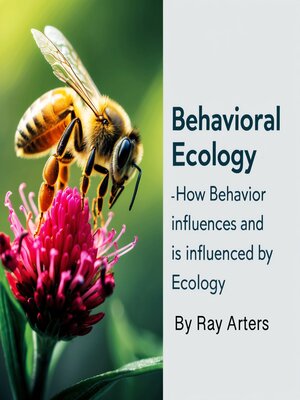Behavioral Ecology
audiobook (Unabridged) ∣ How Behavior Influences and Is Influenced by Ecology
By Ray Arters

Sign up to save your library
With an OverDrive account, you can save your favorite libraries for at-a-glance information about availability. Find out more about OverDrive accounts.
Find this title in Libby, the library reading app by OverDrive.



Search for a digital library with this title
Title found at these libraries:
| Library Name | Distance |
|---|---|
| Loading... |
This audiobook is narrated by a digital voice.
Behavioral ecology represents the synthesis of evolutionary biology and ecological principles to understand how natural selection shapes behavioral strategies that maximize individual fitness in specific environmental contexts. This integrative discipline emerged from the recognition that animal behaviors are not merely interesting phenomena to observe and catalog, but rather sophisticated adaptations that have been refined by millions of years of evolution to solve specific survival and reproductive challenges. Understanding behavioral ecology requires examining both the ultimate evolutionary reasons why particular behaviors exist and the proximate mechanisms through which these behaviors are expressed and regulated in response to environmental cues.
The theoretical foundation of behavioral ecology rests on the principle that natural selection favors behaviors that enhance individual reproductive success, leading to the evolution of strategies that optimize the balance between benefits and costs associated with different behavioral choices. This optimization approach assumes that animals behave as if they were designed to maximize their inclusive fitness, which encompasses both direct reproductive success through personal offspring production and indirect fitness gains through assistance to related individuals who share genes by common descent.
Fitness maximization provides a powerful framework for generating testable predictions about behavioral strategies, though it requires careful consideration of the constraints and tradeoffs that prevent animals from achieving perfect optimization. Physical limitations, phylogenetic constraints, environmental unpredictability, and conflicts between different fitness components create situations where compromise solutions represent the best achievable outcomes rather than theoretical optima.







